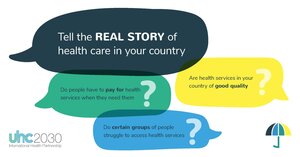World health report 2013: research for universal health coverage.
Overview Universal health coverage ensures everyone has access to the health services they need without suffering financial hardship as a result. In December 2012, a UN resolution was passed encouraging governments to move towards providing universal access to affordable and quality health care services. As countries move towards it, common challenges are emerging -- challenges to which research can help provide answers. The World health report: research for universal health coverage focuses on the importance of research in advancing progress towards universal health coverage. In addition, it identifies the benefits of increased investment in health research by low- and middle-income countries using case studies from around the world, and proposes ways to further strengthen this type of research.
